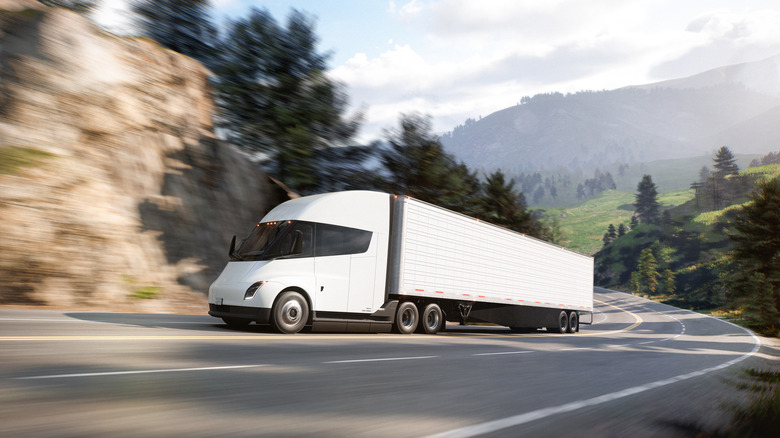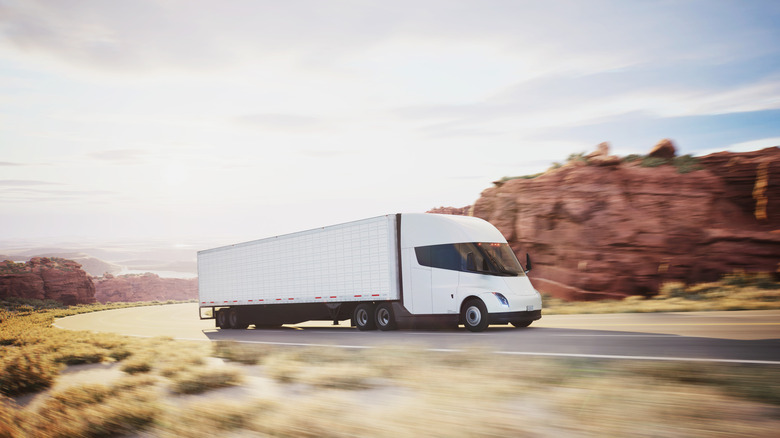How Much Weight Can A Tesla Semi Carry Compared To A Diesel Semi?
The EV market is just starting to see the introduction of pickup trucks with the Ford F-150 Lightning, Rivian R1T, and the yet-to-be-released Chevy Silverado EV. At some point in the future, EV trucks may be able to replace gasoline-powered pickups as the de facto work truck for tradesmen, contractors, and construction crews. But when it comes to real heavy hauling, semi-trucks are still the way to go. According to the United States Department of Transportation Bureau of Transportation Statistics, semi-trucks moved over 11.6 billion tons of freight in the United States in 2020, making it by far the most used form of freight transportation. To say there's a need for EV semi-trucks is an understatement.
While it spent several years in development purgatory, Tesla managed to start delivering its long-awaited Tesla Semi earlier this month. The Semi looks impressive on the outside, but it won't mean much if it can't do the heavy lifting of its diesel-powered contemporaries.
Can the Tesla Semi haul with the best?
According to Tesla, the Semi can go anywhere between 300 to 500 miles on a charge and is powered by three electric motors not dissimilar to the powerplant found in passenger Tesla vehicles like the Model X. It also boasts a 0-60 miles per hour speed of 20 seconds while fully loaded. Per Tesla's website, the Semi is capable of moving under its own power while clocking in at 82,000 pounds gross combination weight. That includes the weight of the truck itself.
How does this stack up against diesel-powered semis? In this case, Tesla's Semi is helped out by Uncle Sam. Under federal law, semi-trucks are only allowed to weigh 80,000 pounds fully loaded (via JDPower). Transportation companies can get overweight or oversize load permits, but those are issued by state governments, which means that maximum permitted overweight loads will vary (via US DOT). With that in mind, it seems that the Tesla Semi will be able to go toe-to-toe with more conventional diesel trucks, at least far as federal weight restrictions are concerned.
While the Tesla Semi can definitively haul with the best of the diesel trucks, it's up to the company to actually deliver, both figuratively and literally.

